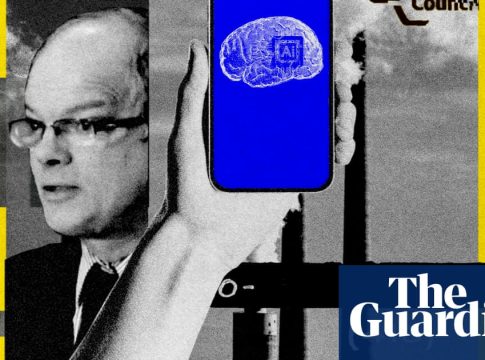Sowing Seeds of Doubt: AI and the Science of Pollutants
In the rapidly evolving landscape of artificial intelligence (AI), ethical questions abound, particularly when industry interests intersect with scientific research. Louis Anthony “Tony” Cox Jr., a risk analyst and former advisor to the Trump administration, is at the forefront of this controversy. With a track record of challenging well-established research on environmental pollutants, Cox is now leveraging AI to scrutinize scientific findings.
Making AI Work for Industry
Cox’s new AI application aims to sift through academic studies to identify what he considers misleading associations between pollutants and health risks. Backed by the American Chemistry Council (ACC) — which represents major chemical giants such as ExxonMobil and DuPont — Cox’s effort prompts significant questions about the objectivity of scientific inquiry when sponsored by such powerful entities.
“This tool is designed to support scientific understanding and enhance transparency,” claims Kelly Montes de Oca, spokesperson for the ACC. However, this assertion raises eyebrows among experts who argue that industry affiliations could skew the results toward minimizing the perceived risks of chemical exposure.
A Troubling Track Record
Cox is no stranger to controversy. His past work has included defending the tobacco industry and downplaying the connections between smoking and health issues. Critics have pointed out that both the tobacco and fossil fuel industries have historically exploited scientific uncertainty to confuse the public and policymakers about the risks of their products.
Despite Cox’s insistence that he seeks “sound technical methods,” his approach has come under fire for potentially distorting scientific consensus. For instance, he has frequently sought to conflate correlation with causation, arguing against strong regulatory measures based on what he calls “imperfectly demonstrated causality.”
AI: A Double-Edged Sword?
As technology advances, the application of AI tools in scientific evaluation is becoming more common. Cox’s AI aims to automate the critical analysis often performed by human reviewers, potentially saving time and resources. However, this raises a significant ethical dilemma: can a machine maintain neutrality when its development is funded by stakeholders with vested interests?
In a correspondence with ChatGPT, Cox expressed frustration that the AI maintained prevailing scientific views rather than a more skeptical stance. His ambition seems to be steering AI toward a form of “critical thinking at scale,” a notion that sounds appealing but may just bolster existing biases if not carefully managed.
What Lies Ahead?
The question remains: Can AI truly enhance the integrity of scientific research, or will it serve as a tool for lobbying and corporate interests? Public health experts worry that these ambitious AI applications may undermine regulatory efforts intended to protect communities from harmful pollutants. As AI continues to reshape scientific landscapes, finding a balance between technological advancement and ethical responsibility has never been more critical.
In conclusion, while Cox’s AI project has the potential to revolutionize the review process in scientific research, the implications of handing such power to industry-backed entities could endanger public health. The challenge ahead is to ensure that the deployment of AI serves the public good, rather than perpetuating doubt and confusion in the realm of human health and safety.

Writes about personal finance, side hustles, gadgets, and tech innovation.
Bio: Priya specializes in making complex financial and tech topics easy to digest, with experience in fintech and consumer reviews.

